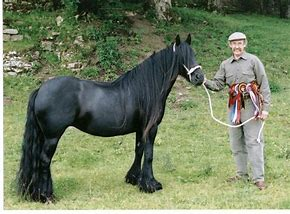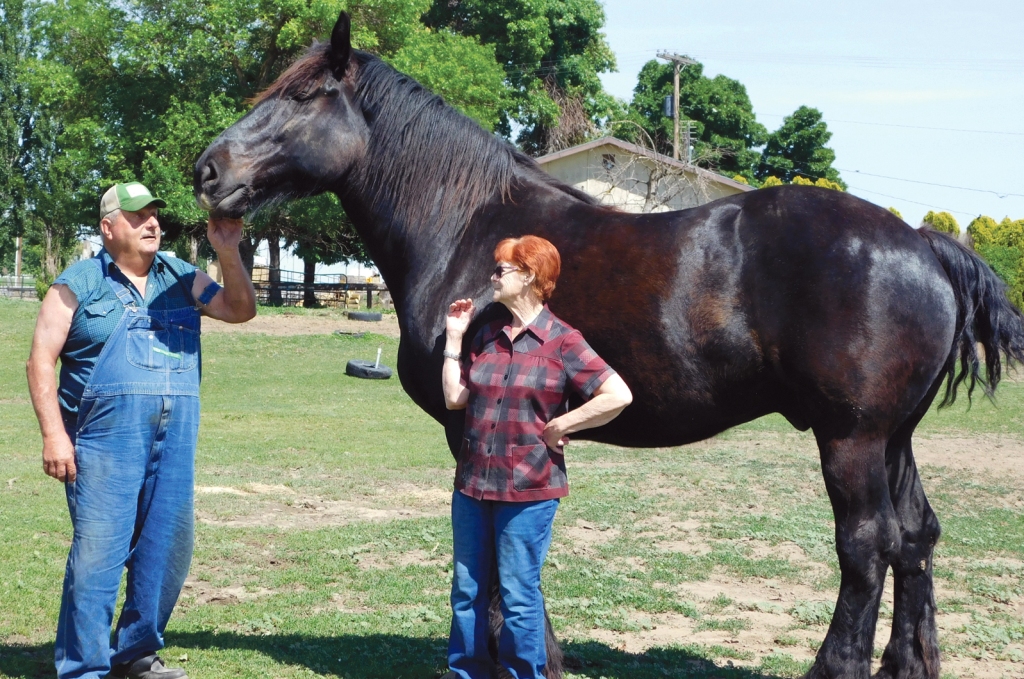Sometimes I think I live in a world of “it doesn’t matter.” But it matters to me.
It matters that this is a picture of ram sheep attacking a woman, not an angry goat.

It matters that this

is an angry donkey, not an angry goat.
and
this is
is a horse.
If we don’t know what animals we share the earth with, how can we know its wealth. If we don’t know have a common, shared vocabulary, how can we discuss things? If we think that the world revolves around us,
It matters that this is a pony:

and this is a horse:

If we don’t know what animals we share the earth with, how can we know its wealth. If we don’t know have a common, shared vocabulary, how can we discuss things? If we think that the world revolves around us,

(https://www.permatree.org/permaculture/ego-centric-vs-eco-centric/)
How do we get the proper perspective on the problem?
My little farm is just one of millions of little farms put things back into perspective. While the media may try to focus everyone’s attention on urban areas, if we’re going to save our world, both our communities and our planet, we need to remember that human beings have the
same needs that every other species on the planet needs – food, air, water and safety. For some, safety is community among people. For others it’s community with nature. Even those who seek solitude, often find the peace of silence and the sounds of the wild.
If we are going to make the changes that the Green New Deal are trying to make we need to put our needs on par with those of the rest of the planet’s need. When I hear people talk about the Green New Deal it’s with such skepticism – how can that big a goal be accomplished? Humankind did it for thousands of years. The changes that were made in our atmosphere, our oceans, our soils, have primarily happened over the last one hundred and fifty years. Before industrialization the rate of change was something the planet could adjust to. But now “technology” moves so fast that the Earth doesn’t have a chance to catch up.
Young people are concerned about “adulting,” and how much information they don’t have at their fingertips. The Internet can provide knowledge, but not experiences. Reliance on media, through the ‘Net, television and now “Virtual Reality,” has made many people so human centric that they no longer consider anything other than themselves. My earlier comment about the sheep vs. goat is because a search on “angry goat,” brings up that image. The television has an advertisement that includes a bawling goat that is labeled as such, but is actually a sheep. The donkey picture is because the Beekman Boys commented on a fashion show that featured an image of a donkey that one of the “Boys” highlighted as an image of a goat making it to the fashion runway. If a person who makes his living off of goats can’t recognize a goat from a donkey, how can they understand the true value of the animal they work with?
The pony vs horse images are because I once had an supervisor correct me when I pointed out the difference between a pony and horse to a little girl. I was told that the little girl would figure it out on her own, but her parents had brought her to an educational farm so she could learn something new. Letting this little girl “Figure out,” that a pony is not the same as a horse, and that pony doesn’t grow up into a horse, does her a disservice, and diminishes the very value of the animals that were there to teach with. If she were to grow up to be a “horsey girl,” like me, she’d be dismissed by others “horsey girls,” if she used the wrong terminology.
Dismissing correct terms, ignoring facts, shifting attention toward flashy objects and services won’t make our planet more livable. It won’t make our food safer. It won’t even make conversation easier. It matters that we listen to each other, learn from our differences instead of dismissing them, and celebrate our place among a magical world of wild things, tame and feral.
I know people want to feel a sense of control in their lives. It’s part of feeling secure. But it is ultimately unsafe to ignore the sources of our food, the conditions in which that food is raised in, from an industrial farm to organic homestead. Staying in the dark about how food is raised, how the planet runs, puts consumers at the risk of manipulation, which Big Ag has succeeded in doing, and our politicians have been chugging the Koolaid.
I want to thank you for taking the time to read this. I hope you’ll share it with others who might find it instructive. I will keep trying to make our farm and your food relevant to the world at large. If you think it’s worthwhile, please pass it on. Regardless, please enjoy the company that surrounds you, and ask questions about where your food and clothes come from. Knowledge will help save the planet, and you. Thanks,
